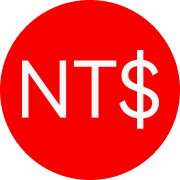
KIKI to PLN Converter and calculator


Conversion rates
Convert KIKI to PLN
Convert PLN to KIKI
KIKI to PLN chart
KIKI to PLN conversion data: Volatility and price changes of KIKICat in PLN
| Last 24 hours | Last 7 days | Last 30 days | Last 90 days | |
|---|---|---|---|---|
High | 0.001265 PLN | 0.001271 PLN | 0.004741 PLN | 0.009310 PLN |
Low | 0.001161 PLN | 0.001161 PLN | 0.001149 PLN | 0.001149 PLN |
Average | 0 PLN | 0 PLN | 0 PLN | 0 PLN |
Volatility | % | % | % | % |
Change | -3.67% | -2.28% | -45.92% | -71.39% |
Buy
Sell
| Merchants (trades/completion rate) | Price | Amount/limit Low to high | Payment methods | Zero fees Action |
|---|
KIKICat information
KIKI to PLN market statistics
Current KIKI to PLN exchange rate
KIKICat to Polish Złoty is falling this week.More info about KIKICat on Bitget
Polish Złoty information
About the Polish Złoty (PLN)
What Is the Polish Złoty (PLN)?
The Polish Złoty, abbreviated as PLN, is the official currency of Poland. Its name, derived from the Polish word for 'gold', reflects its historical value. The symbol of the Polish Złoty is "zł". This symbol is derived from the first two letters of the word "złoty". The symbol is typically used in price tags, financial reports, and other contexts within Poland to denote the amount in złoty, such as 50 zł for fifty złoty. The złoty is subdivided into 100 grosz (gr). The Polish Złoty is the sole legal tender in Poland, and it is used for all transactions within the country.
The Polish Złoty is issued by the National Bank of Poland (Narodowy Bank Polski, NBP), which is the central bank of Poland. The NBP is responsible for the issuance and regulation of the Polish currency, managing its circulation, and maintaining its stability. Additionally, the bank plays a crucial role in implementing monetary policy, overseeing the banking system, and maintaining the country's foreign reserves.
What Is the History of PLN?
The first tangible currency in Poland was the denarius, circulating since the 10th century. The złoty, initially used for foreign gold coins like ducats and florins, was officially introduced in 1919, replacing the Polish marka. During the Kościuszko Uprising and subsequent partitions, the złoty underwent significant changes. The introduction of paper money and the fluctuation in value due to political upheavals marked this era. After World War II, the złoty was reintroduced and underwent redenomination in 1950 and again in 1995 due to hyperinflation. The modern złoty (PLN) replaced the old złoty (PLZ) at a rate of 10,000:1.
Notes and Coins of PLN
The currency comes in various denominations. Banknotes are commonly available in 10, 20, 50, 100, 200, and 500 złoty, while coins are minted in denominations of 1, 2, 5, 10, 20, and 50 grosz, and 1, 2, and 5 złoty. Modern banknotes have advanced security features, including watermarks and unique designs to prevent counterfeiting. The minting of coins and printing of banknotes are also managed under the authority of the National Bank of Poland.
Economic Significance and Exchange Rate
The Polish Złoty (PLN) is crucial to Poland's economy and significant in Central and Eastern European financial markets. As the nation's official currency, it underpins all domestic financial transactions. Governed by a floating exchange rate system, the Złoty's value fluctuates based on Poland's economic performance, interest rates, inflation, and global economic conditions. This fluctuation makes its exchange rate against major currencies like the Euro and US Dollar a vital indicator for investors and economic policymakers. The Złoty's stability is key to attracting foreign investment and maintaining healthy trade relationships. While there is ongoing discussion about Poland potentially adopting the Euro in accordance with its EU membership, the Złoty remains Poland's official currency, highlighting its significance in both the national and regional economic spheres.
Is Polish Złoty Pegged to the Euro?
The Polish Złoty (PLN) operates under a floating exchange rate system and is not pegged to the Euro (EUR). Although Poland is a member of the European Union, it has retained its own currency and has not yet met the necessary convergence criteria to adopt the Euro. In the floating exchange rate system, the value of the Złoty is determined by market forces of supply and demand in relation to other currencies. The decision to transition to the Euro will depend on Poland's fulfillment of these criteria, but until then, the Złoty remains an independent currency, subject to market fluctuations.
Popular conversions










Hot promotions
How to convert KIKI to PLN



Popular KIKICat Converter









Popular cryptocurrencies to PLN










KIKI to PLN Conversion tables
| Amount | 02:56 am today | 24 hours ago | 24h change |
|---|---|---|---|
0.5 KIKI | zł0.0006048 | zł0.0006269 | -3.67% |
1 KIKI | zł0.001210 | zł0.001254 | -3.67% |
5 KIKI | zł0.006048 | zł0.006269 | -3.67% |
10 KIKI | zł0.01210 | zł0.01254 | -3.67% |
50 KIKI | zł0.06048 | zł0.06269 | -3.67% |
100 KIKI | zł0.1210 | zł0.1254 | -3.67% |
500 KIKI | zł0.6048 | zł0.6269 | -3.67% |
1000 KIKI | zł1.21 | zł1.25 | -3.67% |
KIKI to PLN FAQ
What factors influence the conversion rate of KIKI to PLN?
Popular exchange rates — Crypto-to-Fiat converter
The price of KIKICat in the US is $0.0003287 USD. Additionally, KIKICat’s price is €0.0002841 EUR in the eurozone, £0.0002470 GBP in the UK, C$0.0004607 CAD in Canada, ₹0.02919 INR in India, ₨0.09315 PKR in Pakistan, R$0.001768 BRL in Brazil, and more.
The most popular KIKICat currency pair is the KIKI to Polish Złoty(PLN). The price of 1 KIKICat (KIKI) in Polish Złoty (PLN) is zł0.001210.
Popular fiat
Popular areas
Purchase other cryptocurrencies with similar market cap








Other crypto price predictions
 Bitcoin(BTC)Price predictions
Bitcoin(BTC)Price predictions Ethereum(ETH)Price predictions
Ethereum(ETH)Price predictions Celestia(TIA)Price predictions
Celestia(TIA)Price predictions Solana(SOL)Price predictions
Solana(SOL)Price predictions Worldcoin(WLD)Price predictions
Worldcoin(WLD)Price predictions Bittensor(TAO)Price predictions
Bittensor(TAO)Price predictions Dogecoin(DOGE)Price predictions
Dogecoin(DOGE)Price predictions PepeCoin(PEPECOIN)Price predictions
PepeCoin(PEPECOIN)Price predictions Pandora(PANDORA)Price predictions
Pandora(PANDORA)Price predictions ORDI(ORDI)Price predictions
ORDI(ORDI)Price predictions



































